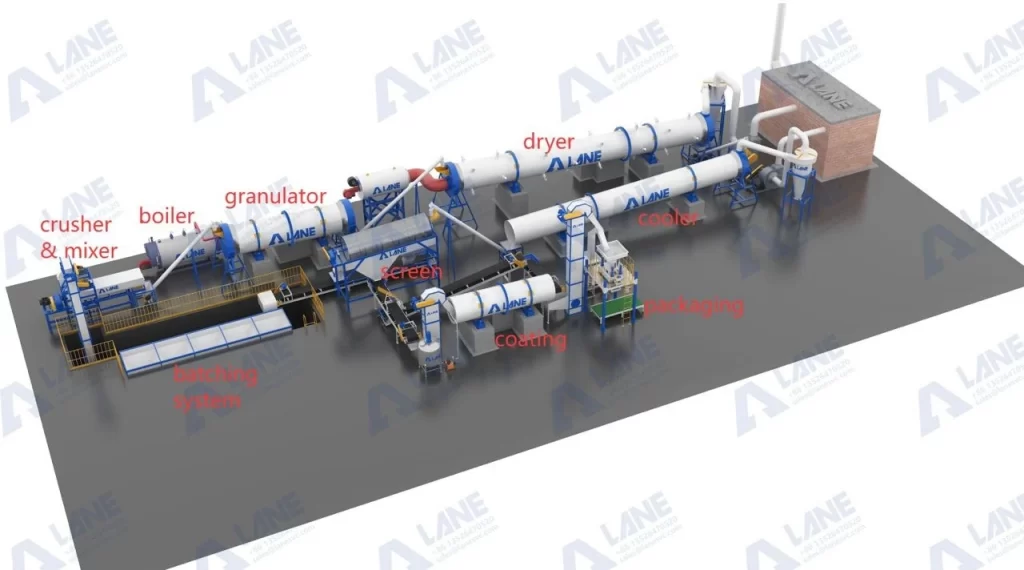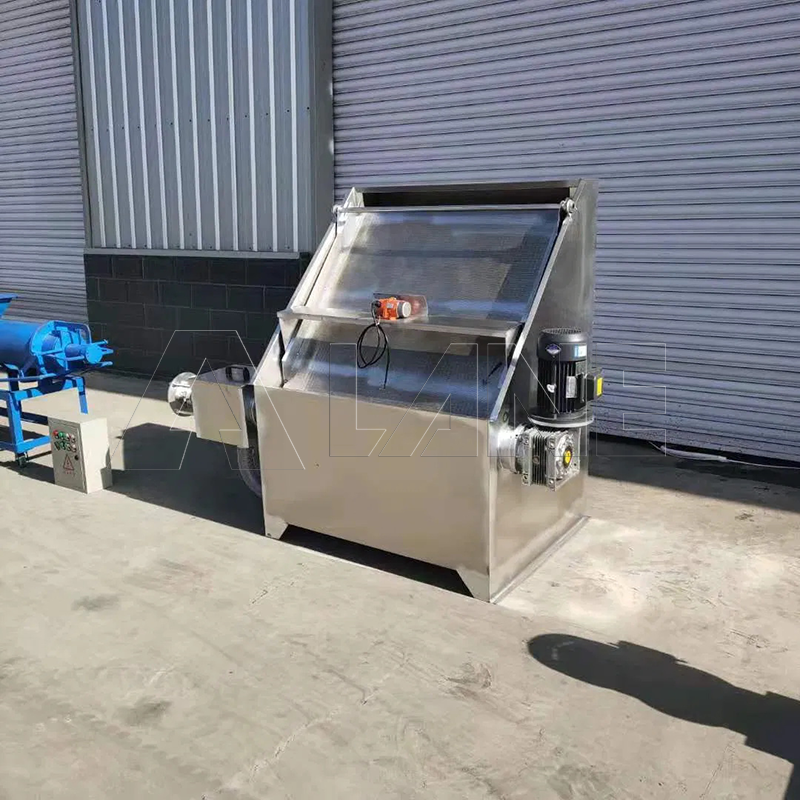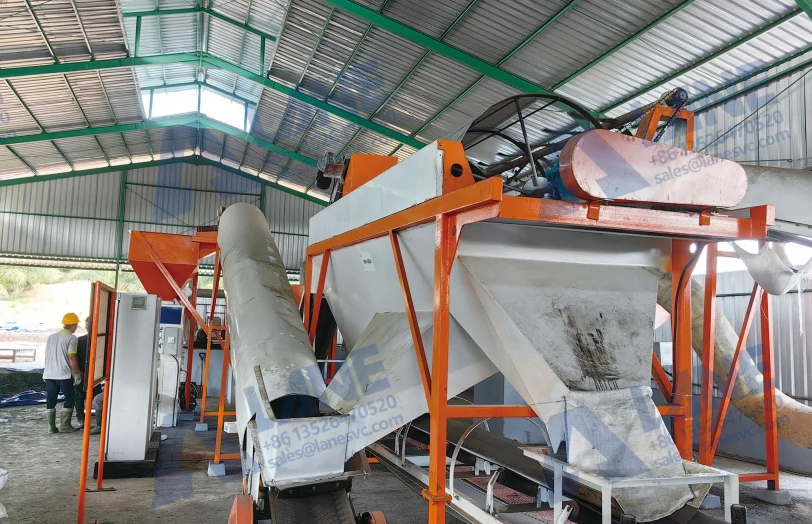One of the major challenges in modern organic fertilizer production is odor. Livestock manure, crop residues, municipal sludge, and food waste are all rich in nutrients, but when they decompose without proper management, they release unpleasant smells. These odors not only affect workers and nearby communities but also harm the image of organic fertilizer as an environmentally friendly solution.
Effective odor control in organic fertilizer production line is therefore critical. By combining advanced composting technology, scientific process management, and specialized equipment, it is possible to reduce or eliminate foul smells while producing high-quality organic fertilizers. With years of experience, LANE has developed systems that integrate odor control with efficient production, helping farmers and enterprises achieve both environmental compliance and economic benefits.

Impacts of Poor Odor Management
Uncontrolled odors are not just an inconvenience—they can have far-reaching consequences for farms and fertilizer enterprises:
Regulatory Risks: Strong odors from untreated manure often draw attention from environmental authorities, leading to inspections, fines, or forced shutdowns.
Loss of Community Trust: Local residents living near fertilizer production sites may file complaints or protests, creating tension between the farm and its surrounding community.
Reduced Fertilizer Quality: Persistent odors often mean incomplete fermentation. Fertilizer produced under such conditions may contain harmful pathogens or excessive ammonia, lowering its market value.
Worker Productivity: An unpleasant and unhealthy work environment reduces efficiency and increases turnover, adding hidden costs to operations.
By directly addressing these impacts, the establishment of odor control in organic fertilizer production line enables farms and enterprises to avoid unnecessary losses and enhance their reputation.
Main Sources of Odor in Organic Fertilizer Production
Raw Manure Handling: Fresh pig, cow, or poultry manure has high ammonia and moisture, quickly generating odors.
Anaerobic Pockets in Compost: Poor aeration causes incomplete decomposition, releasing methane and hydrogen sulfide.
Improper Moisture Balance: Excess water leads to anaerobic fermentation, while overly dry piles slow down composting.
Insufficient Turning: Static piles accumulate gases; without turning, odors persist.
LANE’s Solutions for Odor Control in Organic Fertilizer Production Line
Odor management is not a single step but a comprehensive process. To achieve effective odor control in organic fertilizer production line, LANE has developed integrated solutions that address every stage of production—from raw manure handling to final packaging. This ensures that farms can operate efficiently while protecting the environment and community.
(1) Moisture Reduction with Inclined Dewatering Machine
High moisture content is one of the main causes of unpleasant smells in manure composting.
LANE’s inclined dewatering machine reduces water levels before fermentation begins, preventing anaerobic conditions that generate odor.
This step is essential for pig, cow, and poultry manure where water content is especially high.

(2) Aeration and Turning with Compost Turners
Crawler type compost turner and groove type compost turner are central to odor control in organic fertilizer production line.
They supply oxygen, regulate temperature, and evenly mix the pile to ensure aerobic fermentation.
By preventing anaerobic zones, they cut down emissions of ammonia and hydrogen sulfide, the main sources of odor.
(3) Controlled Fermentation Systems
LANE integrates semi-closed and enclosed fermentation units for farms located in odor-sensitive regions.
These systems keep odors contained while maintaining optimal composting conditions of 55–65°C.
Real-time monitoring of temperature, oxygen, and moisture ensures that decomposition proceeds efficiently without smell leakage.
(4) Air Filtration and Gas Treatment
In later stages like drying, cooling, and screening, odors may still escape.
LANE provides dust collectors, biofilters, and gas scrubbing systems to treat air emissions before they are released into the environment.
This ensures compliance with strict air quality regulations.
(5) Customized Odor Control Designs
Not all farms face the same odor challenges. LANE tailors systems to specific farm sizes, climates, and layouts.
Small farms may benefit from open windrow composting with frequent turning, while large industrial operations require covered composting halls with full filtration units.
Through this integrated approach, LANE ensures that odor control in organic fertilizer production line is achieved at every step. From reducing moisture and controlling fermentation to treating air emissions, the company delivers solutions that balance environmental responsibility with operational efficiency.
Case Example: Pig Farm in Southeast Asia
A pig farm in Southeast Asia faced severe odor complaints from nearby villages. By working with LANE, the farm installed a crawler type compost turner, an inclined dewatering machine, and a semi-closed fermentation system.
Results included:
Odor complaints dropped by more than 70%.
Composting time was reduced from 60 days to 25 days.
The farm started producing high-quality compost, which was sold locally as organic fertilizer.
This case demonstrates how odor control in organic fertilizer production line can solve environmental problems while creating economic value.
Odor Control as a Competitive Advantage
In today’s market, buyers of organic fertilizers expect not only nutrient-rich products but also environmentally responsible production processes. Farms and companies that invest in odor control gain:
Regulatory Approval – Easier compliance with local environmental laws.
Community Support – Better relationships with neighboring residents.
Brand Value – A reputation for producing fertilizers sustainably and responsibly.
By choosing LANE’s equipment and services, producers ensure they stay competitive in the growing organic fertilizer market.

Future Outlook in Odor Control in Organic Fertilizer Production Line
As urban agriculture expands and environmental regulations tighten, odor control in organic fertilizer production line will become even more critical. Future systems will integrate:
Smart Monitoring – Sensors tracking ammonia levels, temperature, and moisture in real time.
Biofilters and Scrubbers – Advanced air purification systems for enclosed facilities.
Automation – Fully automated composting and turning for consistent odor management.
LANE is committed to advancing these technologies, ensuring customers remain at the forefront of sustainable fertilizer production.
Odor is one of the biggest challenges in manure management, but with modern solutions, it no longer needs to be a barrier. Through proper equipment and process design, odor control in organic fertilizer production line turns manure into a valuable, marketable resource while protecting the environment and community well-being.
With advanced compost turners, dewatering machines, dust collection systems, and strong after-sales service, LANE provides farmers and enterprises with the tools they need to succeed. By investing in LANE’s solutions, producers ensure cleaner, more efficient, and more sustainable organic fertilizer production.
For more details, please feel free to contact us.
Henan Lane Heavy Industry Machinery Technology Co., Ltd.
Email: sales@lanesvc.com
Contact number: +86 13526470520
Whatsapp: +86 13526470520